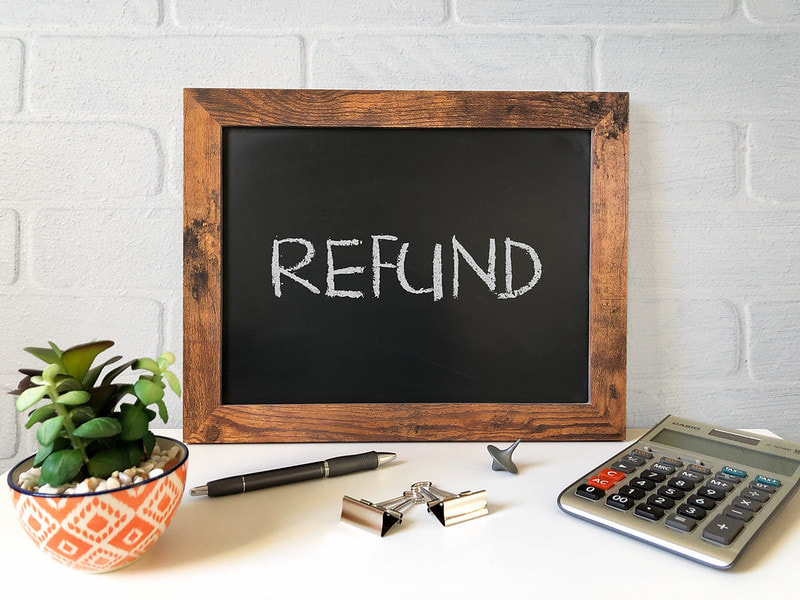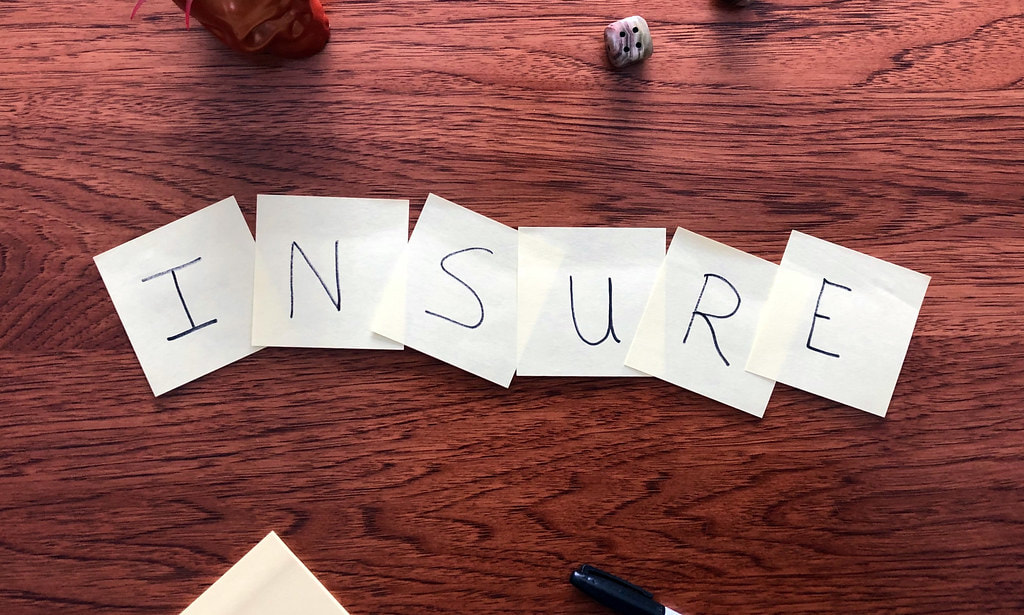|
Hey Girl!
I’ve been trying to get my cancelled flight to Zimbabwe refunded for a month but haven’t made any progress, do you have any suggestions? Tsungi
Hi Tsungi
This is a great question and highly topical now that flights and holidays are being cancelled left, right and centre. The tips below resulted in Tsungi getting a refund of about £1,500 within a week when she had been struggling for a month to get her money back. I hope you have the same luck…ultimately… There are three paths you need to follow for a refund and you need to follow them in the following order: 1. Ask the seller for a refund first. So, if you booked via a third-party site, eg. Booking.com, trivago, etc call that third-party company and ask for a refund. If you booked directly, e.g. with easyjet, Kenya Airways or Ryanair ask them for a refund. Some sellers are very good at giving refunds and can turn something around within a matter of days that’s why I would choose this route first. It can be pretty low hassle. If you have nothing back within a week go to step 2. 2. If you booked your holiday or whatever product it is using a credit card, the credit card provider is legally obliged to refund you if you make a request, under section 75 of the consumer credit act in the UK. If you booked via a debit card banks refund you via a voluntary scheme called a chargeback scheme and sometimes this can result in a faster refund than with the legally required credit card refund, although chargebacks are not enshrined in law. According to moneysavingexpert.com, You can use chargebacks under any of the following circumstances:
I used the chargeback scheme when Monarch airlines went into administration and natwest refunded me within less than one week and before they themselves got the money back from Monarch’s administrators. So, it’s an awesome scheme. As anyone who follows me know, I don’t own a credit card so I have never had the experience of needing to claim something back under section 75 but as it is a legal requirement you would definitely get the money back PROVIDED you spent over £100, i.e. you need to spend at least £100.01 for a single item for you to be able to make a claim under section 75 of the consumer credit act. This is different to the chargeback scheme available for debit cards as you are covered for anything over £10. There is also a difference in timing: Credit cards allow you upto 6 years to make a claim while chargebacks can be requested up to 120 days from when the service should have been provided. After 120 days you can’t make a chargeback. If you paid via PayPal you have upto 180 days to claim a refund. Although I had a great experience with my chargeback for flights with Monarch Airlines, I have been waiting over 60 days for HSBC to get a chargeback for me from flights booked with Dream World Travel and they are blaming covid for the delay. 3. Finally, if the two routes above fail, claim on your travel insurance. Travel insurance won’t pay out until the two routes above have been exhausted. If you don’t think you have travel insurance check you don’t have via your bank account, e.g. my family gets free travel insurance under my HSBC Premier bank account. In summary, to get money back request a refund:
Heather x p.s. subscribe to my podcast and ask me any money question, HERE - do it now!
0 Comments
Hi Heather
Can you do an educational post on Life Insurance? A lot of people in our community still depend on donations when there is a bereavement, I think they’d be surprised to find out how cheap it actually is to get life insurance. Miriam
Firstly, I need apologise because I got this request in September 2017 when I was so focused on finding a job. It’s been at the back of my mind ever since but deaths from COVID-19 have prompted me to get round to writing this as a matter of urgency!
So, how do you know if you need life insurance? The test is very simple. If you answer yes to any one of the following two questions, you need life insurance: 1.Is anyone financially dependent on me? 2.Would my death cause a financial burden for anyone else? If you have dependents then you need life insurance. The dependents might be your children, your parents, your partner or someone else entirely. Even if everyone is completely independent of you, if you don’t have enough money in the bank for the funeral then you need some kind of insurance, either life insurance or funeral insurance depending on your age. Should you get life insurance or a funeral plan? With a funeral plan you essentially prepay some of your funeral costs. The specifics of what is covered vary from provider to provider. Also, to get a funeral plan you usually need to be 50+, I won’t say much more about funeral plans in this post other than if you want to cover more than just your funeral then a funeral plan is NOT what you need.
What is life insurance? How does it work?
When you buy life insurance you make monthly payments to an insurance provider and in the event of your death they pay a pre-agreed amount of money to the dependents named on the policy, these are called the beneficiaries of the insurance policy. There are two main types of life insurance? Term life insurance and whole-of-life insurance Term life insurance pays out if you die within a specified number of years. So, you buy the insurance policy for a fixed term of say 20 years and if you die after that 20 year term there is no pay out because the life insurance will have expired. This is ideal if you want your dependents protected only for a specified time. For example you might choose a term that coincides with the 21st birthday because you decide that by that point a) the child will no longer be dependent on you or b) you will have saved enough money by that point to cover your dependents’ financial needs. In addition to protecting dependents you might want to cover extra funeral costs. For example in my last will and testament I state that I want to be buried in the UK as that is where my husband and children live but I also state that flights must be covered for my parents, siblings and the children of my siblings to attend the funeral. Think carefully about what you a) need and b) want to be covered in the event of your death. If it’s just your dependents’ living costs for x years think carefully through what their annual cost of living is likely to be, does it include school fees? or university fees? Make sure you don’t forget anything that is important to you. If your family has a monthly budget then you can use this as the basis for calculating your dependents living’ costs. Whole-of-life-insurance pays out whenever you die. It is more expensive because you are definitely going to die at some point. You would buy a whole-of-life policy if, say, you want to cover inheritance tax as well if you expect to have enough wealth to be subject to inheritance tax. Most people just buy term life insurance because they just want to protect dependents. Inheritance tax only kicks in for estates worth £1million and over. This is a not a problem for most folk but is more likely to be an issue for the type of folk that listen to personal finance podcasts. TERM LIFE INSURANCE If you decide to buy term life insurance, in addition to the term, you need to make three critical decisions:
Level term insurance pays a fixed amount whenever you die while decreasing term insurance falls towards zero as the maturity date or the end of the term approaches. You would usually buy decreasing term insurance to cover your home mortgage. So you would set the maturity to match the date when you will finish paying off your mortgage and over time, as the mortgage balance falls, so does the pay out. The interest rate used to calculate the balance on your decreasing term insurance policy is usually much higher than the interest rate you actually pay on your mortgage. How this impacts you is that your mortgage balance falls faster than the pay out of the policy. This is obviously good as it means your pay out will be a little higher than the mortgage balance if the terms match exactly. Critical illness cover increases the price of an insurance policy by A LOT but it means that if you get any of the covered illnesses you will get a pay out. Most people add critical cover to the decreasing term life insurance policy that covers their mortgage. If you fell critically ill, the policy would pay you enough to clear your mortgage. This would be really useful if you are the main breadwinner and lost income because of your illness. As the mortgage is usually the biggest monthly expense, not having mortgage payment to worry about would reduce the household’s stress significantly. One extra thing, you can reduce the cost of life insurance by getting a policy that pays out monthly or annually for given number of years instead of getting one lump sum. So, instead of £300,000 paid out in one go you can have a pay-out of £30,000 a year for ten years or £2,500/month for 10 years. You need to decide if this is worth the reduced monthly cost of the insurance policy. Get a quote for both before you decide. You might decide to go for the annual or monthly pay-out if you think your dependents wouldn’t use the money wisely if used in one go. How much does insurance cost? It depends on how old you are and what level of cover you want, i.e. the monthly payment on insurance that would pay out £100,000 if you died is cheaper than insurance that would pay out £500,000. The younger you are, the cheaper it is but obviously the younger you start the longer you will be paying the provider for. I know it’s easy to think I don’t want to pay for something that is likely not to be needed. Possibly the insurance won’t be needed and that’s awesome because it would mean you’ve stayed alive, the better way to think about it, however, is that “in the unlikely event of my untimely death would I regret having paid £x per month to ensure my dependents do not suffer?” Even if all you can spare is £10 per month you should be able to get some life insurance for that amount. How long does it take for life insurance to be paid out? Usually you can expect a payment within 30 to 60 days of filing a claim, but delays can arise—if the insured person dies within the first two years of the issuance of a policy, for example, that may need some investigating. At a base level, this is all you need to know. So, let’s summarise to help you with next steps. If you have figured out that you do need life insurance then you need to decide:
My thoughts are that at a minimum you should have enough life insurance to cover your mortgage and the costs of living until your youngest child is 18. Critical illness is great but if you can’t afford it don’t stop yourself from getting life basic insurance. Please don’t leave your dependents to depend on the good will of people, get insured. I hope this helps! Much love and stay blessed. Heather Have a money question for me?
If you have any personal finance questions send them to [ME] – I will answer whatever piques my fancy via a blog post.
The Top Investment You Need To Make If You Have Kids – Life Insurance and Mortgage Insurance24/8/2016  If your partner died today would you struggle financially? Would you be able to make mortgage payments, pay the bills and school fees easily? I would and it’s not because I’ve got a huge stash of cash in the bank. If you are a parent and you haven’t done this, I suggest you stop doing whatever you’re doing right now and sort it out! I come from a country where most people don’t plan for their death at all. When a Malawian dies their family often expects everyone to pitch in for the funeral. There is often no financial plan for the children left behind and some well-wishing relative will normally take the children in. The death rate of young, working people in Malawi is high so this is a frequent occurrence. Now, because the cost of insurance is high and unaffordable for most, this is acceptable. I love coming from a society that supports its own. If you live in a developed country, however, I think it’s completely unacceptable. Whether you own something or nothing, are an immigrant or a native you should get life insurance especially if you have kids. WHAT IS LIFE INSURANCE? In exchange for monthly payments called insurance premiums a life insurance contract pays out a lump sum if the holder of the insurance dies. This is called pure life insurance. If you want to be covered if you get critically ill as well, you can get life insurance with critical illness cover. The specific illnesses that are covered are listed in the insurance contract. Paying premiums can feel like a waste of money but if you think about it as a payment for peace of mind, it makes paying feel like less of a burden. The insurance can be under a single name or joint names. If it is in joint names the cover pays out when either one of the named parties dies or falls critically ill (if critical illness is included). WHAT IS MORTGAGE INSURANCE? In exchange for monthly payments (mortgage insurance premiums) a mortgage insurance contract pays out a lump sum if the holder of the insurance dies. The sum paid out is designed to track the amount outstanding on your mortgage. This means the amount you would get on a payout falls from month to month as the mortgage outstanding falls. You can also add critical illness cover to a mortgage insurance contract. WHY WOULD YOU GET INSURANCE? WHY DOES IT MATTER? You buy insurance to make sure your loved ones don’t struggle financially if the worst should happen – that is, if you died. It’s a back up plan. Plan B. So, if for example your partner dies, you would contact the insurance company, present the death certificate and they would pay you whatever the insurance contracts states they should pay. Although a mortgage insurance contract is designed to track your mortgage, when the money is paid out you are free to use it for whatever you want. You don’t have to pay off the mortgage. If you made overpayments on your mortgage or if the interest rate on the mortgage insurance contract is higher than the interest rate you were actually paying (this is usually the case) you will have some money left over after paying off the mortgage. Claiming for a death can be easier than claiming for an illness because it’s simpler to prove. Sometimes when a claim is put in for a critical illness insurance companies go all out trying to prove you hid something when you signed the contract. The good news is that it’s a lot harder for companies in Europe to do that nowadays. The courts look more favourably upon the contract holder especially if any omission the insurance company claims was made is completely unrelated to the illness at hand. WHAT IF YOU DON’T OWN PROPERTY OR ANYTHING ELSE? Get life insurance anyway to cover funeral expenses and to give the surviving partner time to grieve without worrying about money. MY LOVER IS GOING TO KILL ME TO GET THE INSURANCE PAYOUT! I’ve heard some people argue that getting life insurance isn’t a good decision because it would incentivise their partner to kill them. Firstly, if you think this, get a new partner. That said, to avoid any sort of incentive get a level of cover that’s worth less than your partner’s lifetime earnings. If your partner’s earnings over the life you’ll have together will exceed the insurance contract’s payout then this won’t be a risk. Don’t forget that there’s a financial burden when a death occurs even if the partner that dies wasn’t earning money but worked in the home. In the case where the homemaker dies the earner has to now invest in costly childcare and home cleaning services. WHAT DOES INSURANCE COST AND WHERE CAN YOU GET IT? I don’t recommend getting life insurance through price comparison websites. Ideally, get the advice of an independent financial adviser so that they can guide you towards a provider that will suit your needs best. Try to get life insurance from a well-known company or bank. If you have never heard of the company check that they are regulated by the Financial Conduct Authority in the UK or whoever your local regulator is you are else where. If you’re 20 years old, £200,000 of pure life cover for 25 years costs as little as £8/month. This increases to about £10 per month if you’re 30. Our key interest was covering our children’s private education. The expected cost is £24,000 a year and we estimated to have such costs for the next 21 years so we got a level £504,000 of insurance cover for 21 years with critical illness included for about £87.10/month. This sounds like a lot but without the critical illness cover it was under £40/month. Mortgage insurance cover costs us £37.10/month. It doesn’t include critical illness. Oh, yeah, and while you’re at it please get a will in place too. What are your thoughts on life insurance? A great way to get peace of mind or a waste of good earned cash? Have a business or life question you want me to answer? Please email it to me with the subject “Question”. Note that all such questions will be answered as a blog post and will be sent to my full email list.
Want to start a business? Check out The Money Spot Program. |
Heather on WealthI enjoy helping people think through their personal finances and blog about that here. Join my personal finance community at The Money Spot™. Categories
All
Archives
September 2023
|
Heather Katsonga-Woodward, a massive personal finance fanatic.
** All views expressed are my own and not those of any employer, past or present. ** Please get professional advice before re-arranging your personal finances.




 RSS Feed
RSS Feed


